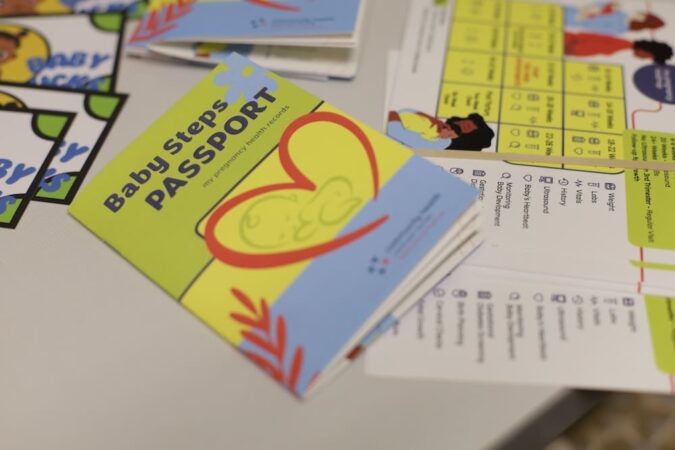
Community Health Northwest Florida has a new program for pregnant women to help them get the support and services needed for a healthy pregnancy. “Baby Bucks” is designed to provide encouragement to expectant mothers by providing educational materials and much- needed supplies.
A committee comprised of a cross-section of team members from departments, including Quality, Clinical, Outreach, Pediatrics and Women’s Care, developed the incentive program to encourage pregnant women to keep their vital prenatal checkups.
In March 2024, it was reported by the South Florida Sun Sentinel that over the past decade, Escambia County has averaged one infant dying every 12 days before the baby reaches its first birthday. Escambia Children’s Trust reported in their 2024 Report Indicator Card, our percentage of low birth rates has risen to 11.8 %, the 6th highest in the state.
“The bottom line was that we need to focus on how to help mothers before and during pregnancy,” said Chandra Smiley, CEO of CHNWF. “What we saw we could do immediately is to concentrate on quality prenatal care to prevent maternal complications during pregnancy.”
Expectant mothers will earn “Baby Bucks” at each appointment to use for baby products and care items when the baby arrives. Car seats, strollers and other items will be available for “purchase” with their Baby Bucks.
CHNWF will provide mothers an easy-to-follow pregnancy Road Map for their prenatal care. The map provides an overview of each healthcare milestone with icons to indicate when important labs, ultrasounds, diabetes screenings, cervical checks and more should occur.
A Pregnancy Passport will help mothers keep track of their appointments, detailing birth weights and check-ups. The passport will be stamped when they complete each appointment. The value of the passport is to provide a quick history of the pregnancy to providers.
CC Milford of 3SIXTY Media designed the graphics for the maps and passports. She was inspired to donate water bottles for program participants. Health experts suggest that during pregnancy women should drink eight to 12 cups of water a day to help form amniotic fluid and aid in digestion. The bottles are a fun, informational way to remind them to hydrate.
Perhaps the most important part of Baby Bucks is monitoring the data received to get results and measure the program’s success.
Smiley says that the program is flexible and designed to be refined as CHNWF learns from collected data. CHNWF plans to use medical mobile units to ensure mothers get health checks in their communities when needed.
“We know that a worst-case scenario is a mother showing up to an emergency room, in labor, who has not seen a doctor at all during their pregnancy,” Smiley says. “Our hope is that this program will lay the groundwork to make sure they get the necessary health checks and care.”
CHNWF recently created a foundation to help by providing prescription assistance, diagnostic testing and support for programs like Baby Bucks.
If you would like to learn more about this program, the foundation and other ways you can help support healthy outcomes for Escambia and Santa Rosa counties, contact us for more information.
Maternal Health Program Team:
Debbie Newton Director of Quality (Retired)
Tenesha Byrd, Director of Quality
Tabitha Thicklin, Clinical Office Manager, Jackson Women’s Health
Sena Maddison, Chief Image Officer
Wilfredo (Junior) Saquibal, Primary Care Clinical Staff Manager
Kaylee Adkins, Pediatric Clinical Staff Manager
Lyzette LaSanta, Quality Improvement Coordinator
Reggie Dogan, Outreach and Events Manager
CC Milford, Angel at 3SIXTY Media



